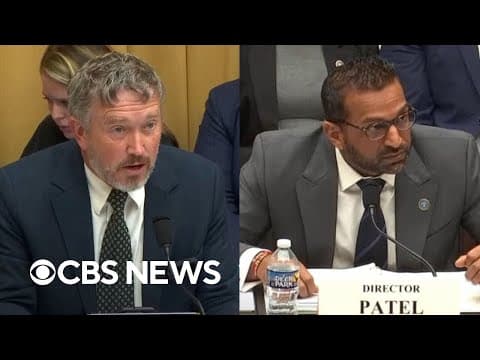Massie's Anti-Trafficking Stance Draws '100% Loss' of Libertarian Support Claim

Representative Thomas Massie (R-KY), a prominent figure known for his libertarian-leaning principles, is facing scrutiny and claims of diminished support from his political base following recent actions related to sex trafficking. A social media post from user "Dave 🧊" provocatively asserted, "Thomas Massie has declared war on the sex tourist community. Unfortunately for Thomas, the results are in, and he just lost 100% of his libertarian support." This tweet highlights a perceived contradiction in Massie's legislative record and his alignment with libertarian ideology.
The sentiment expressed in the tweet appears to stem, in part, from Massie's 2022 vote against the Frederick Douglass Trafficking Victims Prevention and Protection Reauthorization Act. This legislation, which passed with broad bipartisan support, aimed to reauthorize and bolster programs combating human trafficking, including measures to prevent international sex tourism perpetrated by child sex offenders. Massie stated his opposition was due to the bill's lack of a cost offset for additional spending and his disapproval of funding allocated to USAID, aligning with his consistent fiscal conservative stance.
However, Massie has simultaneously been a vocal advocate against sex trafficking through other significant initiatives. Most notably, he has led a bipartisan effort to compel the release of all government files related to convicted sex offender Jeffrey Epstein, a push that has gained considerable traction. Massie has even accused leaders within his own Republican party of "protecting sex traffickers," underscoring a firm stance against child sex trafficking and demanding transparency.
The apparent contradiction highlights a nuanced debate within libertarian circles. While the movement generally opposes government overreach, including interventions that could be seen as infringing on individual liberties, the issue of sex trafficking presents a complex challenge. Massie's fiscal objections to certain anti-trafficking bills, rooted in libertarian principles of limited government spending, can sometimes be interpreted differently by those who prioritize the direct combatting of human rights abuses.
Despite the claim of a "100% loss" of libertarian support, Massie's overall legislative record, marked by votes against government spending, surveillance, and foreign interventions, largely resonates with his libertarian base. The current debate reflects the tension between various libertarian tenets, particularly when fiscal conservatism intersects with social issues, leading to differing interpretations of a politician's adherence to core principles.